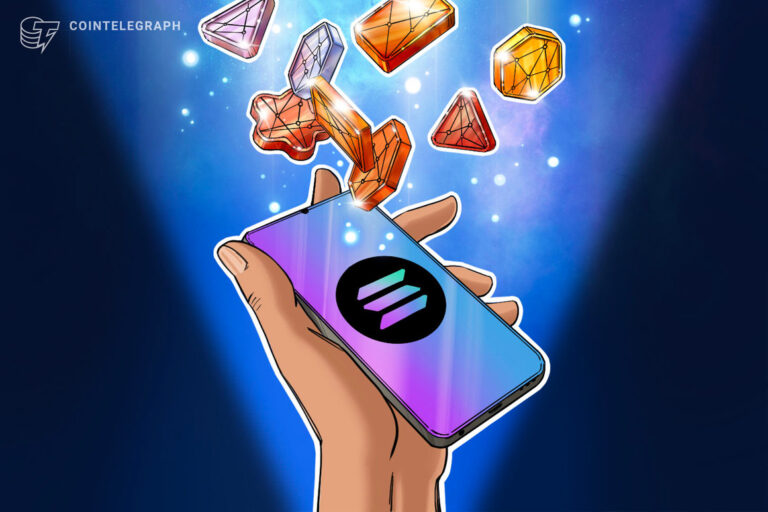
Source: news.google.com
During the ecosystem’s annual meeting at Breakpoint 2022 in Lisbon, Solana made a series of launch announcements as it prepares to go mainstream. Cointelegraph’s field team, present during the conference, shared information on Solana’s roadmap, which includes smartphone launches, decentralized application (DApp) stores, and a partnership with Google Cloud, among others.
good morning from @SolanaConf
Come say hi if you see us with our Cointelegraph merchandise
Follow this thread for more updates on this beautiful event! pic.twitter.com/4m2jNaTSNS
— Cointelegraph (@Cointelegraph) November 5, 2022
Solana Breakpoint, a four-day conference scheduled for November 4-7, drew 13,000 people in just one of four venues where it is held simultaneously.
QR code and GeoNFT giveaways for Solana Store
Fortunately for the Cointelegraph field team, the venue was attended by Solana co-founder Raj Gokal and Solana Labs co-founder Anatoly Yakovenko.

Soon after, Vibhu Norby, CEO and founder of Solana Spaces, took the stage to deliver an interactive presentation while asking attendees to scan QR codes to enter a raffle.

Norby also introduced the Solana store in Miami, showing a tour video of people visiting the store, as shown above. Furthermore, the CEO revealed that:
“Now anyone, anywhere can build their own Solana store.”
While explaining the process of building a Solana store, Norby announced the launch of GeoNFT, a non-fungible token (NFT) implementation, which allows users to geotag an area of their city. He further explained:
“If you have a GeoNFT, you can redeem it 1 for 1 with the exclusive rights to open a Solana store in that region.”
With GeoNFT, Solana aims to empower independent entrepreneurs who want to start a business.
Solana smartphones available for pre-order in early 2023
“It’s made for people,” said Solana’s mobile team when announcing the launch of its upcoming smartphones. Cointelegraph has found that pre-orders for Solana mobile phones will begin in 2023. However, the company has yet to state an official date for its availability.

A differentiating feature of the Solana phone lies in its ability to securely store the private keys of cryptographic wallets. The Solana smartphone will be powered by a Qualcomm chipset with an Arm-based SoC, enabling greater productivity.
Cointelegraph’s ground team managed bring an advance of the soon-to-be-launched Solana smartphone.
Solana dApp store: A promise of crypto-friendly policies
Preparing for the discontinuation of Web3, Solana announced the launch of the Solana App Store. During the conference, a Solana spokesperson highlighted the need for a good user experience in Web3.
Supporting the cause, the Solana DApp store promises to remove charges, revenue and fees. Additionally, the company confirmed with interested participants that submissions would open in January 2023.
Google Cloud will soon become a validator for Solana nodes
While the above announcements mark a number of milestones for Solana, the ecosystem’s partnership with Google Cloud clearly garnered attention.

Based on information collected by the Cointelegraph field team, Google Cloud is building a Solana validator that produces blocks to participate in and validate the network.
Google Cloud’s Blockchain Node Engine, which was first announced on October 27, will appear on the Solana chain starting in 2023. The integration will allow users to launch a dedicated Solana node in the cloud.
In addition, Google Cloud will index Solana data into BigQuery, a fully managed serverless data warehouse, by next year, making it easier for Solana developers to access historical data.
Related: Solana-based protocol seeking to decentralize ridesharing raises $9 million
On October 11, Solana (SOL) users were attacked by hackers via a fake Solana wallet security update.
Hackers were found airdropping NFTs to users posing as a new Phantom wallet security update. However, the fraudulent update was malware designed to steal crypto assets.

Users who fell for the fake Phantom update trick saw malware being downloaded from GitHub, which attempts to steal browser information, history, cookies, passwords, SSH keys, and other user information.
Read More at news.google.com